- Clone
- 7C9 (See other available formats)
- Regulatory Status
- RUO
- Other Names
- Sialic acid-binding Ig-like lectin 8 (Siglec-8), Siglec8L, Sialoadhesin family member 2 (SAF2)
- Isotype
- Mouse IgG1, κ
- Ave. Rating
- Submit a Review
- Product Citations
- publications
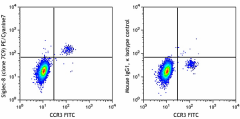
-

Human peripheral blood leukocytes were stained with CCR3 FITC and Siglec-8 (clone 7C9) PE/Cyanine7 (left) or mouse IgG1, κ PE/Cyanine7 isotype control (right). Data shown was gated on the granulocyte cell population.
| Cat # | Size | Price | Quantity Check Availability | Save | ||
|---|---|---|---|---|---|---|
| 347111 | 25 tests | 137€ | ||||
| 347112 | 100 tests | 329€ | ||||
Siglec-8 is a lectin specific for 6'-sulfo-sLex and a member of the Ig-superfamily. It is expressed almost exclusively in eosinophils; however, basophils and mast cells can express it to a lower degree. Siglec-8 is a 54 kD transmembranal protein; the extracellular domain has one V-set Ig-like domain and two C2-set domains. The cytoplasmic domain has two immunoreceptor tyrosine-based inhibitor motifs (ITIM) that recruit SH2-family phosphatases after tyrosine phosphorylation. There are reports that siglec-8 inhibits the release of histamine and prostaglandin D2 mediated by the IgEFcR. This molelcule is also involved in the induction of apoptosis.
Product DetailsProduct Details
- Verified Reactivity
- Human
- Antibody Type
- Monoclonal
- Host Species
- Mouse
- Immunogen
- Recombinant Siglec-8 fused to human IgG Fc
- Formulation
- Phosphate-buffered solution, pH 7.2, containing 0.09% sodium azide and BSA (origin USA)
- Preparation
- The antibody was purified by affinity chromatography and conjugated with PE/Cyanine7 under optimal conditions.
- Concentration
- Lot-specific (to obtain lot-specific concentration and expiration, please enter the lot number in our Certificate of Analysis online tool.)
- Storage & Handling
- The antibody solution should be stored undiluted between 2°C and 8°C, and protected from prolonged exposure to light. Do not freeze.
- Application
-
FC - Quality tested
- Recommended Usage
-
Each lot of this antibody is quality control tested by immunofluorescent staining with flow cytometric analysis. For flow cytometric staining, the suggested use of this reagent is 5 µl per million cells in 100 µl staining volume or 5 µl per 100 µl of whole blood.
- Excitation Laser
-
Blue Laser (488 nm)
Green Laser (532 nm)/Yellow-Green Laser (561 nm)
-
Application References
(PubMed link indicates BioLegend citation) -
- Floyd H, et al. 2000. J. Biol. Chem. 275:861.
- Wen T, et al. 2014. J Immunol. 192:5481. PubMed
- Product Citations
-
- RRID
-
AB_2629719 (BioLegend Cat. No. 347111)
AB_2629720 (BioLegend Cat. No. 347112)
Antigen Details
- Structure
- A lectin of 54 kD, belonging to the Ig-superfamily; has one V-set Ig-like domain and two C2-set domains; has a single transmembrane domain, and two immunoreceptor tyrosine-based inhibitor motifs (ITIM) in the cytoplasmic domain
- Distribution
-
Eosinophils, basophils, mast cells
- Function
- Cell adhesion, signal transduction
- Interaction
- Phosphatases containing a SH2 domain
- Bioactivity
- Inhibition of IgE receptor-triggered histamine and prostaglandin D2 release, apoptosis
- Cell Type
- Basophils, Eosinophils, Mast cells
- Biology Area
- Cell Adhesion, Cell Biology, Immunology, Signal Transduction
- Molecular Family
- Adhesion Molecules, Siglec Molecules
- Antigen References
-
1. Bochner BS, et al. 2009. Clin. Exp. Allergy. 39:317.
2. Hudson SA, et al. 2009. J. Pharmacol. Exp. Ther. 330:608.
3. Nutku E, et al. 2005. Biochem. Biophys. Res. Commun. 336:918. - Gene ID
- 27181 View all products for this Gene ID
- UniProt
- View information about Siglec-8 on UniProt.org
Related Pages & Pathways
Pages
Related FAQs
Other Formats
View All Siglec-8 Reagents Request Custom Conjugation| Description | Clone | Applications |
|---|---|---|
| Purified anti-human Siglec-8 | 7C9 | FC |
| PE anti-human Siglec-8 | 7C9 | FC |
| APC anti-human Siglec-8 | 7C9 | FC |
| PE/Dazzle™ 594 anti-human Siglec-8 | 7C9 | FC |
| PE/Cyanine7 anti-human Siglec-8 | 7C9 | FC |
| PerCP/Cyanine5.5 anti-human Siglec-8 | 7C9 | FC |
| TotalSeq™-C0199 anti-human Siglec-8 | 7C9 | PG |
| PE/Cyanine5 anti-human Siglec-8 | 7C9 | FC |
| TotalSeq™-D0199 anti-human Siglec-8 | 7C9 | PG |
| Biotin anti-human Siglec-8 | 7C9 | FC |
| Alexa Fluor® 647 anti-human Siglec-8 | 7C9 | FC |
| TotalSeq™-A0199 anti-human Siglec-8 | 7C9 | PG |
| KIRAVIA Blue 520™ anti-human Siglec-8 | 7C9 | FC |
| TotalSeq™-B0199 anti-human Siglec-8 | 7C9 | PG |
| Spark Red™ 718 anti-human Siglec-8 (Flexi-Fluor™) | 7C9 | FC |
| Spark Blue™ 574 anti-human Siglec-8 (Flexi-Fluor™) | 7C9 | FC |
| Spark Blue™ 550 anti-human Siglec-8 (Flexi-Fluor™) | 7C9 | FC |
Customers Also Purchased
Compare Data Across All Formats
This data display is provided for general comparisons between formats.
Your actual data may vary due to variations in samples, target cells, instruments and their settings, staining conditions, and other factors.
If you need assistance with selecting the best format contact our expert technical support team.
-
Purified anti-human Siglec-8
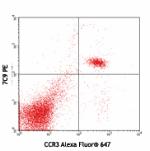
Human peripheral blood cells stained with anti-human CCR3 Al... -
PE anti-human Siglec-8
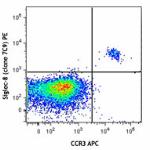
Human peripheral blood leukocytes were stained with CCR3 APC... 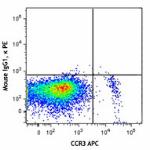
-
APC anti-human Siglec-8
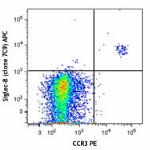
Human peripheral blood leukocytes were stained with CCR3 PE ... 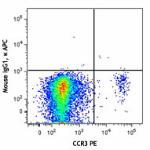
-
PE/Dazzle™ 594 anti-human Siglec-8
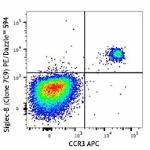
Human peripheral blood leukocytes were stained with CCR3 APC... 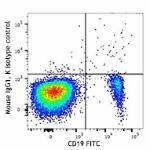
-
PE/Cyanine7 anti-human Siglec-8

Human peripheral blood leukocytes were stained with CCR3 FIT... -
PerCP/Cyanine5.5 anti-human Siglec-8

Human peripheral blood leukocytes were stained with CD193 (... -
TotalSeq™-C0199 anti-human Siglec-8
-
PE/Cyanine5 anti-human Siglec-8

Human peripheral blood granulocytes were stained for CD193 F... -
TotalSeq™-D0199 anti-human Siglec-8
-
Biotin anti-human Siglec-8

Human peripheral blood granulocytes were stained with anti-h... -
Alexa Fluor® 647 anti-human Siglec-8

Human peripheral blood leukocytes were stained with anti-hum... -
TotalSeq™-A0199 anti-human Siglec-8
-
KIRAVIA Blue 520™ anti-human Siglec-8

Human peripheral blood leukocytes were stained with anti-hum... -
TotalSeq™-B0199 anti-human Siglec-8
-
Spark Red™ 718 anti-human Siglec-8 (Flexi-Fluor™)
-
Spark Blue™ 574 anti-human Siglec-8 (Flexi-Fluor™)
-
Spark Blue™ 550 anti-human Siglec-8 (Flexi-Fluor™)
 Login / Register
Login / Register 









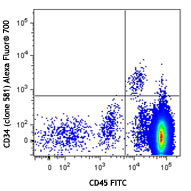
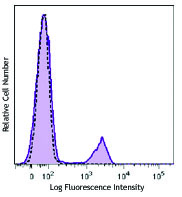
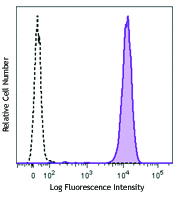
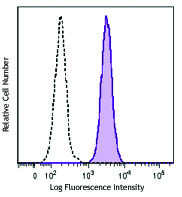



Follow Us